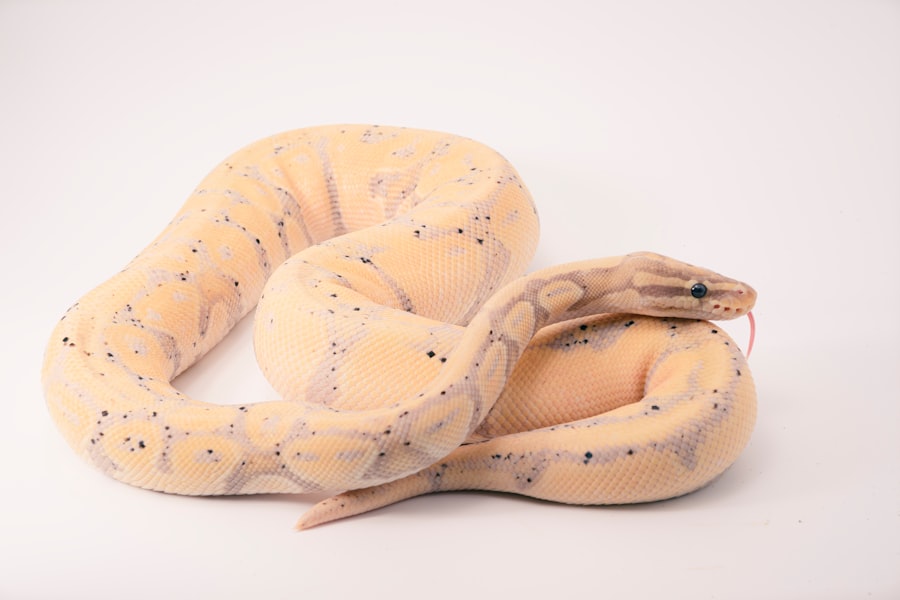When protecting a chicken coop from snakes, it is essential to identify the snake species present in the local area. Different regions have varying snake populations, each posing unique challenges. In North America, common non-venomous snakes that may threaten chickens include the Eastern Rat Snake, Black Rat Snake, Garter Snake, and Eastern Milk Snake.
These species are often attracted to chicken coops due to the presence of eggs and small rodents. In regions with venomous snakes, such as Copperheads or Timber Rattlesnakes, the risk to chickens is more severe. Understanding snake behavior is crucial for effective protection.
Snakes are ectothermic, seeking warm and sheltered areas for rest and hunting. They are adept climbers and can navigate through small openings. This knowledge helps in identifying potential entry points and implementing appropriate security measures.
By combining information about local snake species with an understanding of their behavior, chicken owners can develop targeted strategies to safeguard their coops. This approach enables the creation of more effective preventive measures and reduces the risk of snake intrusions.
Table of Contents
- 1 Securing the coop: Implementing effective barriers to keep snakes out
- 2 Keeping the surroundings clean: Removing potential hiding spots for snakes
- 3 Using natural deterrents: Planting herbs and plants that repel snakes
- 4 Monitoring the coop: Regular checks and maintenance to prevent snake entry
- 5 Educating the chickens: Training your flock to be wary of snakes
- 6 Seeking professional help: Consulting with experts for additional advice and assistance
- 7 FAQs
Key Takeaways
- Identify common snake species in your area to understand the potential threat to your coop
- Implement effective barriers such as hardware cloth and snake-proof fencing to keep snakes out of the coop
- Remove potential hiding spots for snakes by keeping the surroundings clean and free of debris
- Plant herbs and plants such as marigolds, lemongrass, and wormwood to naturally repel snakes from the coop area
- Regularly check and maintain the coop to prevent snake entry, and educate your flock to be wary of snakes
- Seek professional help and advice from experts to further safeguard your coop against snake threats
Securing the coop: Implementing effective barriers to keep snakes out
Sealing the Coop
Once you have identified the common snake species in your area and understand their behaviors, the next step is to secure your chicken coop with effective barriers to keep snakes out. One of the most important measures you can take is to ensure that the coop is well-sealed and free of any gaps or openings that snakes could use to gain entry. Inspect the coop thoroughly for any cracks in the walls, holes in the floor, or gaps around doors and windows.
Blocking Entry Points
Use materials such as hardware cloth or heavy-duty wire mesh to cover these openings and prevent snakes from slithering inside. Additionally, consider installing a skirt of hardware cloth around the perimeter of the coop to prevent snakes from burrowing underneath.
Installing a Predator-Proof Fence
Another effective barrier to keep snakes out is to install a predator-proof fence around the coop. Use hardware cloth or welded wire fencing with small openings to create a barrier that snakes cannot penetrate. Make sure the fence is buried at least 6 inches into the ground to prevent snakes from digging underneath. It’s also important to ensure that the fence is tall enough to prevent snakes from climbing over.
By implementing these barriers, you can significantly reduce the risk of snakes gaining access to your chicken coop.
Keeping the surroundings clean: Removing potential hiding spots for snakes

In addition to securing the coop itself, it’s important to keep the surroundings clean and free of potential hiding spots for snakes. Snakes are attracted to areas with abundant cover, such as tall grass, brush piles, and cluttered debris. By keeping the area around the coop well-maintained and free of clutter, you can make it less appealing for snakes to take up residence near your chickens.
Regularly mow the grass, trim back overgrown vegetation, and remove any piles of wood or debris that could provide hiding spots for snakes. Another important step in keeping the surroundings clean is to eliminate potential food sources for snakes. Snakes are attracted to areas with an abundance of prey, such as rodents and insects.
By keeping the area around the coop free of food sources, you can make it less likely for snakes to be drawn to your property. Implement pest control measures to keep rodent populations in check, such as sealing off entry points into the coop and using traps or baits to capture mice and rats. By removing potential hiding spots and food sources for snakes, you can create a less hospitable environment for them around your chicken coop.
Using natural deterrents: Planting herbs and plants that repel snakes
In addition to implementing physical barriers and keeping the surroundings clean, you can also use natural deterrents to repel snakes from your chicken coop. There are several herbs and plants that are known for their ability to repel snakes due to their strong scents or toxic properties. Planting these around the coop can help create a natural barrier that discourages snakes from approaching.
Some examples of plants that repel snakes include marigolds, lemongrass, garlic, and lavender. These plants emit strong odors that snakes find unpleasant, making them less likely to linger near your coop. Another natural deterrent for snakes is the use of certain essential oils.
Oils such as cinnamon, clove, and cedarwood are known for their ability to repel snakes due to their strong scents. You can create a natural snake repellent spray by diluting these essential oils with water and spraying it around the perimeter of the coop. This can help create a barrier that deters snakes from approaching the area.
Additionally, consider using sulfur as a natural snake repellent by sprinkling it around the coop. Snakes are known to avoid areas with a strong sulfur odor, making it an effective natural deterrent.
Monitoring the coop: Regular checks and maintenance to prevent snake entry
Even after implementing physical barriers, keeping the surroundings clean, and using natural deterrents, it’s important to regularly monitor the coop for any signs of snake activity and perform routine maintenance to prevent snake entry. Conduct regular checks of the coop and surrounding area for any signs of snake presence, such as shed skins, tracks, or droppings. Look for any new openings or gaps that may have developed over time and promptly repair them to prevent snakes from gaining access.
In addition to regular checks, it’s important to perform routine maintenance on the coop to ensure that all barriers remain effective. Inspect the hardware cloth, fencing, and other barriers for any signs of wear or damage, and make repairs as needed. Keep vegetation around the coop trimmed back to prevent it from providing cover for snakes, and promptly remove any debris or clutter that could create hiding spots.
By staying vigilant and performing regular checks and maintenance, you can proactively prevent snake entry into your chicken coop.
Educating the chickens: Training your flock to be wary of snakes

Training Your Chickens to Recognize Snakes
In addition to taking measures to keep snakes out of the coop, it’s also important to educate your chickens and train them to be wary of snakes. Chickens are naturally curious animals and may not recognize snakes as a threat, making them vulnerable to potential attacks.
Using Decoys and Skins to Educate Your Flock
One way to educate your flock is by introducing them to harmless snake decoys or skins. Place these decoys or skins near the coop so that the chickens become familiar with the sight and scent of snakes. This can help them recognize real snakes as a potential threat and be more cautious around them.
Sound Deterrents for Added Protection
Another way to train your chickens is by using sound deterrents that mimic the warning calls of birds when they spot a predator. There are commercially available devices that emit sounds resembling distress calls of birds, which can alert chickens to potential danger and encourage them to seek shelter.
By training your flock to be wary of snakes and other predators, you can help them better protect themselves and reduce the risk of snake attacks.
Seeking professional help: Consulting with experts for additional advice and assistance
Finally, if you’re facing persistent issues with snakes around your chicken coop or if you live in an area with venomous snake species, it’s important to seek professional help by consulting with experts for additional advice and assistance. Local wildlife experts or pest control professionals can provide valuable insights into effective snake deterrent strategies specific to your area. They can also offer guidance on safe and humane methods for dealing with snake infestations or removing venomous snakes from your property.
In some cases, professional assistance may be necessary for implementing more advanced snake deterrent measures, such as installing snake-proof fencing or using specialized trapping techniques. Additionally, experts can provide valuable information on local regulations regarding handling and relocating snakes, ensuring that you comply with legal requirements while addressing snake-related issues on your property. By seeking professional help, you can gain access to specialized knowledge and resources that can help you effectively protect your chickens from snake threats while ensuring the safety of both your flock and local wildlife.
In conclusion, protecting your chicken coop from snakes requires a multi-faceted approach that includes understanding the common snake species in your area, implementing effective barriers, keeping the surroundings clean, using natural deterrents, monitoring the coop regularly, educating your chickens, and seeking professional help when needed. By taking proactive measures and staying vigilant, you can create a safer environment for your flock and reduce the risk of snake-related incidents. With careful planning and consistent efforts, you can successfully safeguard your chickens from snake threats and promote their well-being on your property.
If you’re looking for ways to protect your chickens from snakes, you may also be interested in learning about how to care for goslings. Goslings are vulnerable to predators, including snakes, so it’s important to take steps to keep them safe. Check out this article on how to care for goslings for more information on keeping your poultry protected.
FAQs
What are some natural ways to keep snakes away from chickens?
Some natural ways to keep snakes away from chickens include keeping the coop area clean and free of debris, using essential oils such as cinnamon or clove to create a barrier, and introducing natural predators of snakes such as cats or certain species of birds.
What are some physical barriers to keep snakes away from chickens?
Physical barriers to keep snakes away from chickens include installing hardware cloth or mesh fencing around the coop and run area, using snake-proof netting over the top of the coop, and sealing any gaps or openings where snakes could enter.
Are there any specific plants that can help repel snakes from the chicken coop area?
Plants such as marigolds, wormwood, and lemongrass are known to have repellent properties against snakes. Planting these around the chicken coop area can help deter snakes from coming close.
What should I do if I encounter a snake near my chicken coop?
If you encounter a snake near your chicken coop, it’s important to remain calm and avoid startling or provoking the snake. Contact a professional wildlife removal service or animal control for assistance in safely removing the snake from the area.
Meet Walter, the feathered-friend fanatic of Florida! Nestled in the sunshine state, Walter struts through life with his feathered companions, clucking his way to happiness. With a coop that’s fancier than a five-star hotel, he’s the Don Juan of the chicken world. When he’s not teaching his hens to do the cha-cha, you’ll find him in a heated debate with his prized rooster, Sir Clucks-a-Lot. Walter’s poultry passion is no yolk; he’s the sunny-side-up guy you never knew you needed in your flock of friends!







